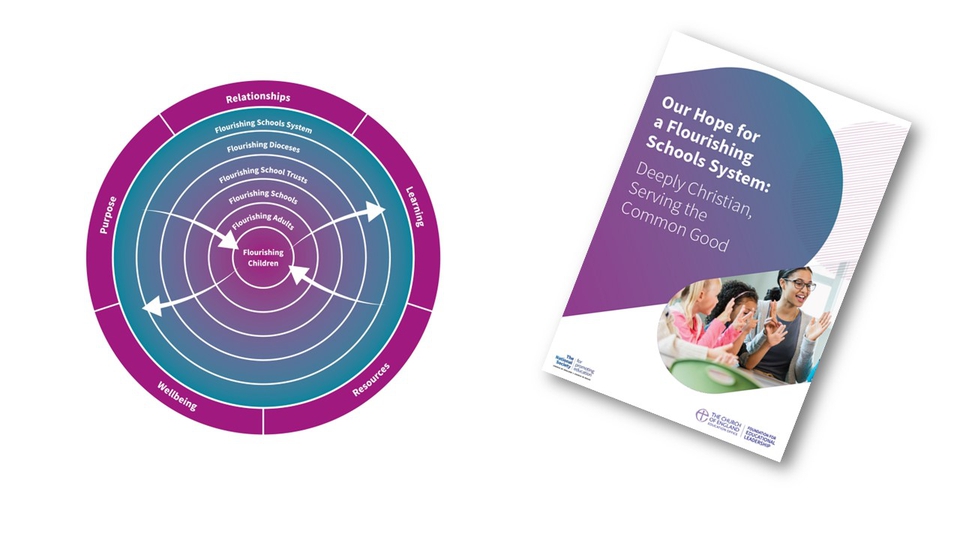Our Hope for a Flourishing Schools System
Underpinned by the Church’s 2016 Vision for Education, ‘Our Hope for a Flourishing School System’ makes recommendations including a once-in-a-generation re-imagination of special educational needs and disabilities (SEND) funding, provision, training and development, wise and compassionate accountability systems for school inspections and performance measures and steps to ensure teaching is again regarded as an vocation in which adults can truly flourish and commit long-term.

The document sets out the importance of collaboration in different local contexts, particularly between schools in smaller rural areas, to ensure every child in every community receives an effective provision. It concludes with recommendations for four leadership levels: Schools, School Trusts, Dioceses and Government, and invites dialogue across the sector to engagement and develop flourishing partnerships:
- For School Leaders, the document includes encouragement of further development of young leaders with increased proportions of under-represented groups, while alleviating negative pressures on work-life balance for all staff.
- For School Trust Leaders, there is encouragement to prioritise formation of character and spiritual, moral, social and cultural development, focusing on the needs of particular communities and supporting those schools in need of the greatest support – including small schools, while fostering deep collaboration between school trusts.
- For Diocesan Leaders, there is encouragement to provide pastoral and wellbeing care to leaders, focussing on the sustainability of schools within the mission of the wider diocese. Dioceses should encourage continuous improvement with particular regard to RE, collective worship and with support for SIAMS inspections, and recruit and retain governance leaders. Children and Young People should be at the heart of the diocesan vision and strategy.
- For Government leadership the recommendations include a major re-imagining of SEND funding and provision, reduced anxiety in the system, developing compassionate accountability through re-imagined inspection processes, restoring the attractiveness of teaching as a long-term vocation in which all can flourish, and developing broad curriculum models which balance academic, vocational and technical pathways for children to develop as global citizens who understand the vital role that religious literacy plays in the world.